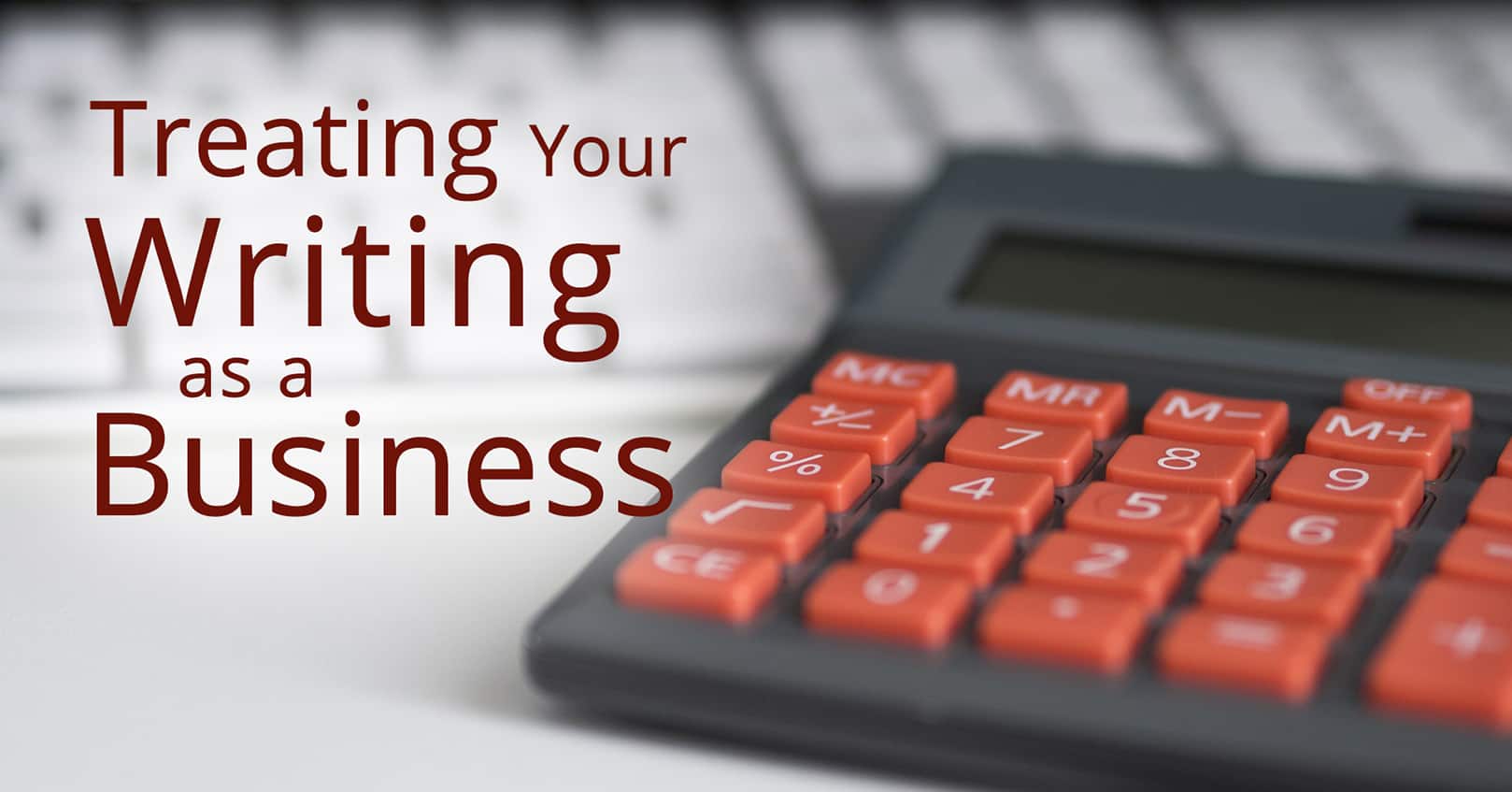
If you are a full-time author or even just beginning to make money on your writing, then you should be treating your writing as a business! Check out these tips to get you started.
Work 8 Hours a Day
Let friends and family know your working hours and ask them not to disturb them. Take breaks according to the Pomodoro Method, and teach your children to wait until these times to disturb you.
Invest in Your Business
Pay an editor to polish your books. If you’re not good at cover design, pay a designer. Get a website and a domain. You can’t make good money without these basics.
Get a Separate Checking Account
Treat your writing as a business by getting a separate checking account and even a credit card for your writing business. This not only makes keeping track of income and expenses easier, it also proves business intent to the IRS.
Keep Good Records
Record business income and expenses on accounting software or on a spreadsheet. Keep receipts you are given or invoices from contractors to prove expenses. If you go to a conference, keep your registration form to prove it was a business expense. These records will help you get the best tax deductions and can prove deductions to the IRS if you get audited.
Take Tax Deductions
Taxes on your writing business will be steep, since you have to pay both income tax and self-employment tax. But you can get taxed less by lowering your taxable income through claiming deductions. This is the biggest way you can treat your writing as a business.
Home Office
If you can set up a room as a home office that you only use for your writing, you can deduct a home office on your taxes. There are two basic requirements for your home office to qualify as a deduction: regular and exclusive use, and is the principal place of your business. More information here.
Supplies
Generally speaking, if you purchase supplies with a useful life of less than one year, you can expense (deduct) the full cost in the year you purchased them. Examples are printer paper, pens, paper clips, staples.
Assets
If the item has a useful life of more than one year, then you may have to depreciate it. With this process you can deduct the cost a little at a time over several years. Examples of depreciable assets are computers and office furniture.
However, you can elect to take a section 179 deduction, instead of depreciation deductions, for certain property.
See IRS Publication 946 for detailed information.
Research Expenses
If you spend money on books for research or on hiring a researcher, you can deduct those expenses.
Professional Services
If you pay an editor, cover designer, agent, or even an attorney in relation to your book-writing business, you can deduct those fees.
If you pay a contractor to do work for your writing business, and you pay them more than $600, you may need to send a 1099-MISC form to them and to the IRS at the beginning of the next year. You do not need to send this form if you paid the contractor with a credit card, a payment card, or through a third-party network such as PayPal.
You also will not file 1099-MISC for personal expenses. For the complete details, see the IRS instructions here.
Website
The fees involved in creating and maintaining your author website, including hosting fees and the domain fee, can be deducted.
Travel
If you travel to attend a writing workshop or conference, do a tour, do research, etc., you can deduct the travel cost, including airfare and lodging. If you deduct for this, keep careful records, such as a registration form and flyer, to prove that you were actually there for business. The IRS is very strict on travel deductions. For more information, see IRS Publication 463.
If any part of your business travel is outside the United States, some of your deductions for the cost of getting to and from your destination may be limited. If your trip was primarily for personal reasons, such as a vacation, the entire cost of the trip is a nondeductible personal expense. However, you can deduct any expenses you have while at your destination that are directly related to your business.
Local trips for your business that you take in your car can also be deducted. Just keep a spreadsheet of dates you drive and what it was for—such as driving to your publisher, going to the store to pick up office supplies, or driving to libraries or bookstores to talk about your book—and you can take the standard mileage deduction on those miles. You must keep track of these miles because if you are audited, you may need to prove them with your spreadsheet.
Business Meals
These can be deducted at 50% if the event has a clear business purpose, you keep a record of what was discussed, and you keep receipts. This is another category the IRS is strict on, so if you use this deduction, be sure to keep careful records.
Note that the Tax Cuts and Jobs Act changed the rules for the deductibility of business meals and entertainment.
Ads and Giveaways
The cost of designing and placing ads, such as newspaper, TV, or Facebook ads; flyers, brochures or business cards; promotional items, like bookmarks, t-shirts, or bookbags; giveaways; promotions through websites like Book Cave; signage, such as banners, posters, or billboards; or newsletters, such as MailChimp, can all be deducted under the category of “Advertising” on your taxes.
Health Insurance Premiums
Self-employed people may be able to deduct the amount paid for medical and dental insurance and qualified long-term care insurance for yourself, your spouse, and your dependents. See IRS Publication 535.
Change your business type
If you’re filing as a sole proprietor, it might make sense to switch to an S-Corp or even a C Corporation. This is a move you should not make without first talking to a tax professional, but it can be worth the expense.
This list can get you started on how to best do your taxes, but note that we are not tax professionals! We recommend you research each topic further before using it. And it’s always a good idea to hire a tax professional to help you file one year.















Comments